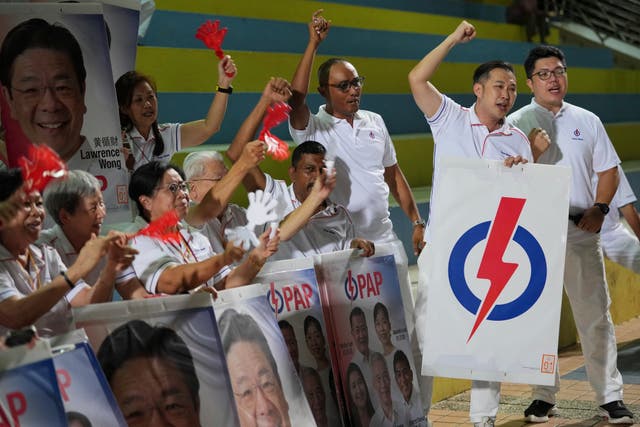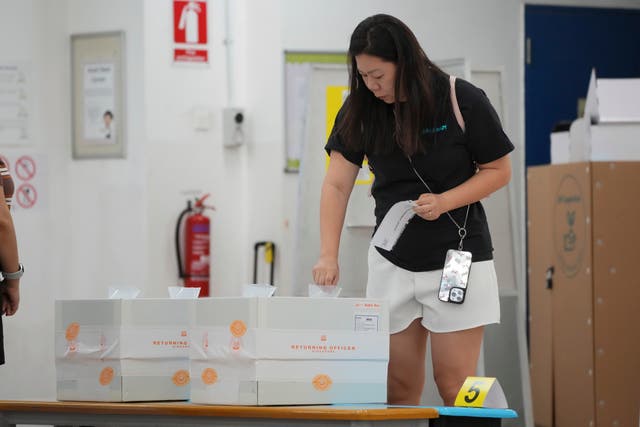Singapore’s long-ruling party on track to win another landslide
The count showed the People’s Action Party (PAP) with strong leads in 82 seats out of 93 seats.

A sample count of votes released by Singapore’s Election Department indicated that the long-ruling People’s Action Party has won another landslide in Saturday’s general elections.
The count showed the People’s Action Party (PAP) with strong leads in 82 seats out of 93 seats.
It earlier won five seats uncontested, which gives the PAP a total of 87 seats in an enlarged Parliament.

In 2020 polls, it won 83 seats.
The sample count showed the opposition Workers Party maintaining 10 seats.
The result will bolster the leadership of Prime Minister Lawrence Wong in his first electoral test since taking office a year ago.
The sample count was based on a random bundle of 100 ballot papers from each polling station. The results are not conclusive and are aimed at curbing speculation and misinformation while counting is in progress. The full results are expected to be released later on Saturday.
PAP had been widely expected to comfortably extend its 66-year dominance in the city-state, but the election is being closely watched for whether the opposition can make further gains as people express unhappiness over tight government control and a high cost of living.
Mr Wong, a US-trained economist who is also finance minister, has appealed for a resounding mandate to steer trade-reliant Singapore through economic turbulence following US President Donald Trump’s tariff hikes.
The government has lowered its trade forecast and warned of a possible recession.

Mr Wong, 52, succeeded Lee Hsien Loong to become the city-state’s fourth leader.
Mr Lee stepped down in May 2024 after two decades at the helm but remained in the Cabinet as a senior minister. His retirement as premier ended a family dynasty started by his father, Lee Kuan Yew, Singapore’s first leader, who built the former colonial backwater into one of the world’s richest nations during 31 years in office.
More than 1,200 polling stations in schools, public housing blocks and other areas shut after 12 hours of voting. Polling in Singapore is compulsory, with nearly 2.76 million eligible voters.
The PAP has secured five of the 97 parliamentary seats because they were unopposed.
The Election Department said turnout was about 82% at 5pm, three hours before voting ended.
The PAP is seen as a beacon of stability and prosperity, but its government-knows-best stance and the rising cost of living in one of the world’s most expensive cities have also led to growing unhappiness, especially among younger voters.
Widening income disparity, increasingly unaffordable housing, overcrowding and restrictions on free speech have loosened the PAP’s grip on power.
The PAP’s share of the popular vote slipped to a near-record low of 61% in the 2020 elections, down from nearly 70% in 2015.
Although it kept 83 out of 93 parliamentary seats, the opposition gained ground with a record 10 seats.





